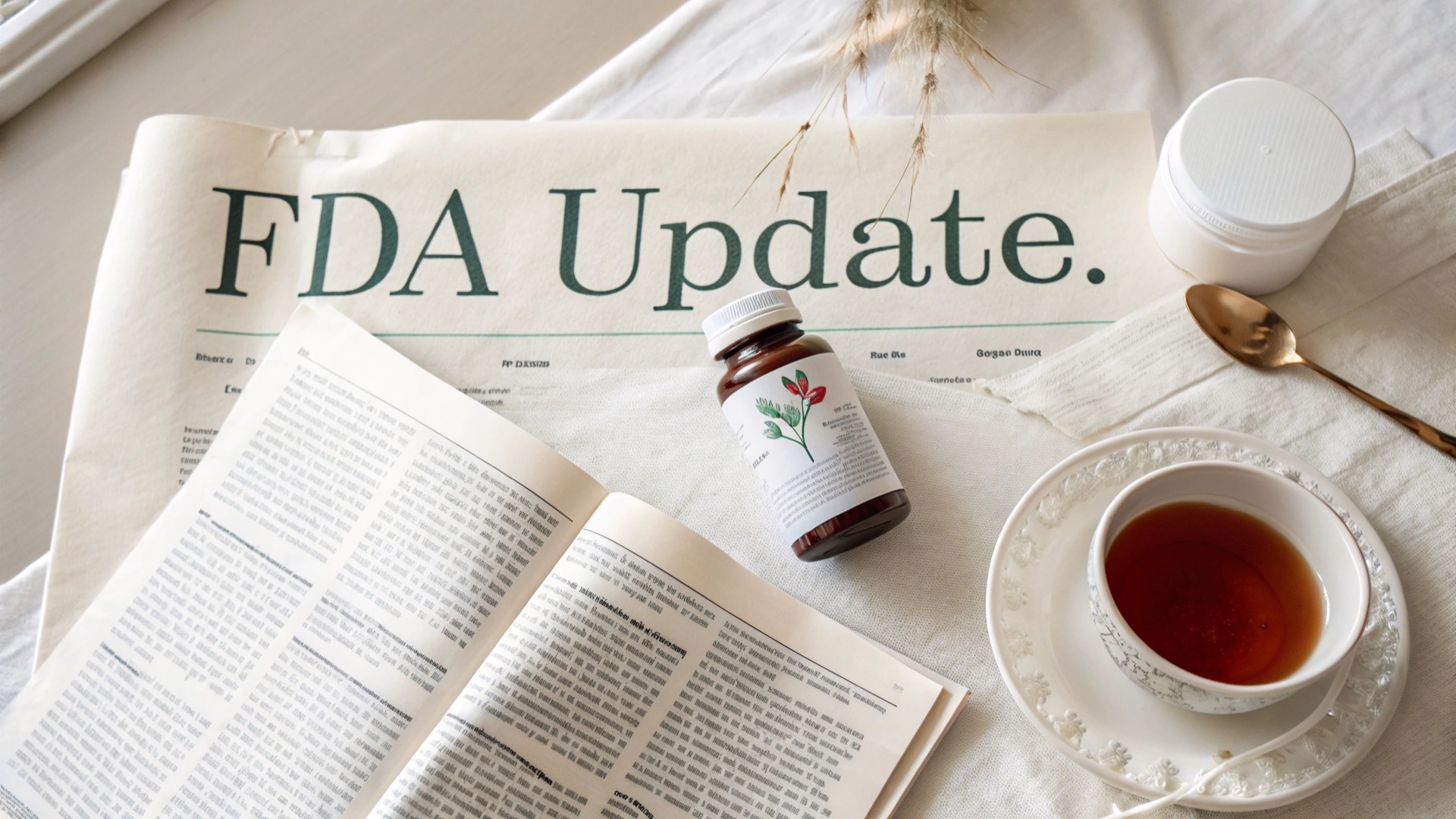Key takeaways
- While foods like broccoli (13,000 µg/100g) and edamame (11,000 µg/100g) contain the highest natural NMN levels, you’d need to eat over 55 pounds of broccoli daily to match typical supplement doses of 250-500mg.
- High-heat cooking destroys NMN content in foods. Raw consumption or gentle cooking methods, such as steaming, help preserve maximum NMN levels in vegetables.
- Clinical studies demonstrating NAD⁺ restoration use supplement doses far exceeding what is achievable through food alone, making supplementation necessary for therapeutic effects.
Overview
Longevity and healthy aging are no longer just buzzwords in wellness communities; they’re central themes in scientific research aimed at understanding how to extend the quality of life.
One star player in this arena is NMN (Nicotinamide Mononucleotide), a naturally occurring compound showing immense promise in boosting NAD⁺ (nicotinamide adenine dinucleotide) levels.
NMN is essential for supporting cellular energy, DNA repair, and maintaining vitality as we age. NAD⁺ is a molecule that facilitates countless cellular functions vital for health. But how do you obtain NMN? Can food alone meet your NMN requirements, or should supplementation play a role?
This article examines the relationship between NMN in food and its potential to increase NAD⁺ levels, as well as the connection between NMN and NAD⁺ in the aging process, specifically in supporting cellular repair and promoting healthy aging.
By the end, you’ll know exactly how diet and supplements, including the importance of a healthy diet, can complement each other to support healthy aging.
What is NMN, and why is it important?
NMN is a precursor molecule for NAD⁺, an essential coenzyme that regulates cellular metabolism, supports mitochondrial function, repairs DNA, and combats oxidative stress.
The biologically active form of NMN is known as β-NMN, which is the form most commonly used in clinical studies and supplements due to its superior efficacy and bioavailability. These roles are far from superficial; they have a direct impact on how well and how long we live. Here’s why NAD⁺ is vital:
- Mitochondrial function: NAD⁺ helps convert nutrients into usable cellular energy. Declining NAD⁺ levels compromise mitochondrial efficiency, often leading to fatigue and age-associated diseases.
- DNA repair: NAD⁺ activates enzymes such as PARPs (poly-ADP-ribose polymerases), which are crucial for repairing DNA damage and thereby delaying aging.
- Resilience against oxidative stress helps mitigate damage caused by free radicals, reducing inflammation and slowing the aging process.
Research has shown that NAD⁺ levels naturally decline with age and are associated with conditions such as diabetes, neurodegenerative disorders, and metabolic dysfunction. Increasing NAD⁺ through NMN offers a pathway to mitigating these challenges and promoting health longevity.
Top foods that contain NMN
NMN exists naturally in several foods, making them important natural sources of NMN that provide natural NMN as part of a healthy diet. Although the quantity varies and is relatively low compared to supplemental doses, these foods can contribute to overall NMN intake and support health. Below is a table of NMN-rich foods and their estimated NMN content per 100 grams:
| Food | Approximate NMN Content (µg/100g) |
| Broccoli | 13,000 |
| Edamame (Green Soybeans) | 11,000 |
| Avocado | 7,000 |
| Cucumber | 3,500 |
| Cabbage | 3,000 |
| Tomato | 1,300 |
| Green Beans | 1,200 |
Maximizing natural NMN from food
While supplements deliver NMN in concentrated doses, certain whole foods naturally contain small amounts of this longevity-supporting compound. However, the way these foods are grown, prepared, and consumed can significantly impact their NMN content and overall bioavailability.
- Values depend on growing conditions and the freshness of the food.
- Cooking methods, particularly high heat, can degrade NMN levels (steaming is recommended).
- Consuming raw forms of vegetables, such as raw broccoli, helps maximize NMN content, as prolonged boiling can degrade NMN and other nutrients.
- Gentle cooking methods, such as steaming, blanching, or quick sautéing, help preserve nutrients, especially in green vegetables.
- These foods are also good sources of vitamin K, particularly cucumbers and edamame.
These foods are rich in essential vitamins, and pairing them with healthy fats, such as those found in avocados and nuts, can enhance nutrient absorption and support overall health. Even these high-ranking foods provide NMN measured in micrograms, a stark contrast to the milligrams consumed in many NMN supplements.
However, regular intake of NMN from NMN-rich vegetables can support cellular health and longevity as part of a balanced diet. Including a variety of NMN-rich vegetables in your meals and combining them with healthy fats and other nutrient-dense foods can help maximize the benefits of natural NMN. Raw beef is also a natural source of NMN, though its NMN content is lower compared to vegetables.
Can you get enough NMN from food alone?
When discussing boosting NAD⁺ for longevity, the question isn’t whether NMN from food is beneficial (it certainly is). The real question is whether food sources are sufficient for achieving therapeutic NAD⁺ restoration. To understand this, consider the following points:
- Most clinical studies on NMN use doses of 250–500 mg per day.
- NMN-rich foods, such as broccoli and edamame, provide 0.01–0.02 mg per 100 g. To consume 250 mg of NMN, one would need to eat over 25 kg (55 pounds) of broccoli daily!
This raises a vital question: how much NMN is needed for therapeutic effects? Research suggests that daily intake in the range of 250–500 mg is typical, far exceeding what can be obtained from diet alone.
While food-sourced NMN contributes to baseline health, its quantities are insufficient for significantly elevating NAD⁺ levels in response to age-related decline. This makes supplementation in supplement form a practical option, especially for those aiming for measurable anti-aging benefits.
For optimal results, it is recommended to choose a high-quality NMN supplement with optimal dosage, purity, and third-party testing.
Other nutrients in NMN-rich foods
Although relying solely on NMN-rich foods for NAD⁺ elevation isn’t feasible, these foods offer a nutritional goldmine. Their synergistic effects promote multiple aspects of longevity and overall health, supporting metabolic health, muscle function, and lipid metabolism in addition to providing essential vitamins. Here’s what these foods bring to the table:
Broccoli
- Sulforaphane (a potent antioxidant that detoxifies cells).
- Fiber promotes gut health and reduces inflammation.
- Vitamin C supports immune function.
Avocado
- Monounsaturated fats are beneficial for heart health.
- Potassium is crucial for managing blood pressure.
- Vitamin E is an anti-inflammatory compound linked to longevity.
Edamame
- Isoflavones, plant compounds, are shown to support hormone balance and reduce the risk of chronic diseases.
- Complete plant protein, ideal for muscle maintenance and cellular repair.
Though their NMN content is modest, incorporating these foods provides a holistic health boost. Think of them as building blocks for baseline wellness rather than the sole solution for longevity.
The role of NMN in DNA repair and telomere length
NMN is more than just a building block for energy; it’s a key player in maintaining the health and resilience of our cells as we age. As a precursor to nicotinamide adenine dinucleotide (NAD+), NMN helps fuel the cellular machinery responsible for DNA repair and the maintenance of telomere length. These processes are crucial for protecting our genetic material from damage and slowing age-associated physiological decline.
Research has shown that NMN supplementation can enhance DNA repair mechanisms, helping to fix damaged DNA and support cellular repair. This is particularly important as we age, since our natural NAD+ levels decline, making it harder for our bodies to cope with daily wear and tear. In animal studies, NMN supplementation has even been linked to increased telomere length, a marker associated with healthy aging and longevity.
Beyond DNA repair, NMN also plays a role in enhancing insulin sensitivity and supporting glucose metabolism, both of which are crucial for overall health and reducing the risk of age-related diseases, such as cardiovascular disease and Alzheimer’s disease. By supporting energy metabolism and cellular health, NMN helps lay the foundation for a longer, healthier life.
NMN and heart health
Supporting heart health is another promising benefit of NMN supplementation and NMN-rich foods. As we age, our arteries can become stiffer and more prone to damage, increasing the risk of cardiovascular disease.
NMN has been shown to help reduce age-related arterial damage and improve overall cardiovascular function by boosting NAD+ levels and enhancing mitochondrial function within heart cells.
Incorporating NMN-rich foods, such as edamame, broccoli, and avocado, into a balanced diet can provide natural support for heart health. These foods, combined with NMN supplementation, may help protect against age-related cardiovascular decline.
Animal studies have shown that NMN supplementation can enhance heart function and lower the risk of cardiovascular disease, underscoring its potential as a therapeutic tool for maintaining a healthy heart as we age.
By supporting mitochondrial function and cellular energy production, NMN helps maintain heart cells’ optimal functioning, making it a valuable addition to any heart-healthy lifestyle.
NMN and bioavailability: Food vs. supplements
When it comes to increasing NMN levels in the body, not all sources are created equal. The bioavailability of NMN from natural food sources is generally lower than what can be achieved through NMN supplements.
While incorporating NMN-rich foods into your diet is beneficial for overall health, supplements offer a more efficient way to reach the higher NMN levels associated with healthy aging and the health benefits seen in clinical trials.
It’s important to note that not all NMN supplements are of the same quality. Choosing high-quality NMN supplements that are backed by clinical research and manufactured to high purity standards is essential for safety and effectiveness.
Consulting with a healthcare professional can help you determine the right approach for your needs, ensuring you get enough NMN to support your health goals.
Combining NMN-rich foods with a balanced diet and carefully selected supplements can maximize the benefits of NMN supplementation, supporting cellular health, energy metabolism, and healthy aging.
Should you combine food and supplements?
To strike a balance between practicality and efficacy, the ideal strategy involves combining quality nutrition with evidence-backed NMN supplements. Here’s why this approach works:
- Food supports baseline health
- Whole foods contain an array of micronutrients, antioxidants, and fiber that address broad health needs. They’re indispensable for foundational wellness.
- Supplements target specific goals.
- Supplementation delivers therapeutic NMN doses, allowing for significant NAD⁺ restoration, even in aging populations.
Regularly consuming NMN, whether through NMN-rich foods or supplements, is important for supporting optimal energy levels and enhancing physical performance. This combined approach can help maintain vitality and support healthy aging.
Notably, postmenopausal women may experience particular benefits, such as improved energy metabolism and overall well-being, from consistent NMN intake.
Furthermore, emerging NMN supplements are:
- Clinically safe: Multiple trials have verified the safety of oral NMN supplementation (100–500 mg/day).
- Bioavailable: NMN readily converts to NAD⁺ at the cellular level, providing measurable benefits.
Integrating both food and supplements ensures a comprehensive longevity strategy, fueling your body with the tools it needs to function optimally.
How to move forward with NMN and NAD⁺?
While the NMN found in foods like broccoli and edamame contributes positively to NAD⁺ levels, the quantities are too minimal to reverse age-related declines on their own. Supplementation, when coupled with a nutrient-dense diet, is the most aligned approach for supporting cellular health and longevity.
In addition to these benefits, NMN may also support brain health by protecting against oxidative stress, promote cardiovascular health by reducing age-related arterial damage, and enhance insulin sensitivity to improve metabolic health.
Consider starting small. Incorporate NMN-rich foods into your daily meals while exploring reputable NMN supplements. For optimal results, consult a healthcare provider or a longevity specialist to determine the appropriate doses tailored to your specific needs.
Bottom line
The future of NMN research is bright, with ongoing studies exploring its potential to prevent and treat a range of age-related conditions, including cardiovascular disease, Alzheimer’s disease, and even cancer.
Researchers are also investigating the optimal dosage and duration of NMN supplementation, as well as the interactions between NMN and other nutrients and medications.
Emerging areas of interest include combining NMN with other supplements, such as resveratrol or vitamin D, to enhance its effects on cellular health and longevity. As new findings continue to emerge, it’s important to stay informed and consult with a healthcare professional before starting any new supplement regimen.
With continued research, NMN may become an even more powerful tool for supporting healthy aging, protecting against age-related diseases, and promoting overall well-being.
Frequently Asked Questions (FAQs)
- Can I rely on food to get enough NMN for anti-aging benefits?
No, the amounts of NMN found in foods are too low to meet clinical anti-aging requirements. Supplements are more practical for elevating NAD⁺ levels.
- Which food has the highest amount of NMN?
Broccoli and edamame are among the wealthiest sources, offering approximately 13,000 and 11,000 micrograms per 100 grams, respectively.
- Does cooking destroy NMN in food?
Yes, cooking at high temperatures can degrade NMN. Steaming is the preferred cooking method to retain its concentration.
- Are whole foods still worth eating if the NMN content is low?
Absolutely! NMN-rich foods are loaded with complementary nutrients that support overall health and longevity.
References
- Alegre, G. F. S. et al. (2025). Determination of NAD⁺ precursors NMN and NR in plant foods: Exploring dietary sources. Food Chemistry.
- Hu, F. et al. (2023). Diet strategies for promoting healthy aging and longevity: An epidemiological perspective. Journal of Internal Medicine.
- Munk, S.H.N. et al. (2023). NAD+ regulates nucleotide metabolism and genomic DNA replication. Nat Cell Biol.








